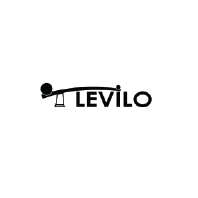Third TPM of DG-VET Project in Cyprus: Advancing Towards Project Goals
The third transnational project meeting held in Cyprus on the 9th and 10th of May proved to be a highly productive and fruitful session for the whole consortium. The partners focused on reviewing the progress made on Project Result 1, which involved data collection for the profiling of NEETs (people who are not in education, employment, or training) and the Digital and Green Economy sectors at the national and European levels, and the resulting state-of-the-art report on young or women NEETs employability within the digital and green economy sectors. The partnership also evaluated the valuable feedback that the national strategic advisory group (NSAG) members gave on the state-of-the-art report.
Following the evaluation of the first concrete output (the report), the team strategized and planned the ongoing and subsequent steps to be undertaken in the project, including the development of digital learning nuggets and learning material, the establishment of an e-learning platform, and an online community, as well as dissemination activities and quality assurance activities.
An essential aspect of the project involves the validation of the digital learning nuggets and learning material that are going to be produced by the consortium. These resources aim to provide innovative and engaging educational content that addresses the needs of vocational education and training (VET) trainers and NEETs to bridge the gap between the skill gaps of NEETs with the needs of the agricultural sector. For this, the team strategized on reaching 20 VET trainers and 30 NEETs to participate in piloting the project results to seek their feedback before finalizing the content. This pilot phase will enable the project to receive valuable feedback and insights from the target audience, allowing for further refinements and improvements. The partners expressed their commitment to finding suitable participants who can contribute to the project’s success within the upcoming weeks. The pilot phase will be instrumental in validating the effectiveness and relevance of the project’s deliverables.
Recognizing the significance of disseminating project outcomes effectively, the team discussed the creation of an e-learning platform and online community in detail. These platforms will serve as repositories for the project’s deliverables, ensuring accessibility to a wide range of stakeholders. During the meeting, preliminary designs and functionalities were reviewed, and the partners provided valuable insights for further refinement. These platforms will play a vital role in facilitating the dissemination of knowledge, sharing best practices, and fostering collaboration among VET trainers, NEETs, and other interested parties.
Finally, the team focused on the importance of utilizing various channels, such as word of mouth, workshops, and online platforms, to maximize visibility and impact, and reviewed the internal and external quality assurance protocols to ensure the integrity and accuracy of the project’s outputs. By establishing robust quality assurance measures, the project aims to deliver high-quality educational resources that meet the needs of VET trainers and NEETs.
In conclusion, we are happy to report that the third project meeting in Cyprus proved to be a productive and dynamic session, driving the project closer to its goals.










Funded by the European Union. Views and opinions expressed are however those of the author(s) only and do not necessarily reflect those of the European Union or the European Education and Culture Executive Agency (EACEA). Neither the European Union nor EACEA can be held responsible for them. 2021-1-BE01-KA220-VET-000035895




